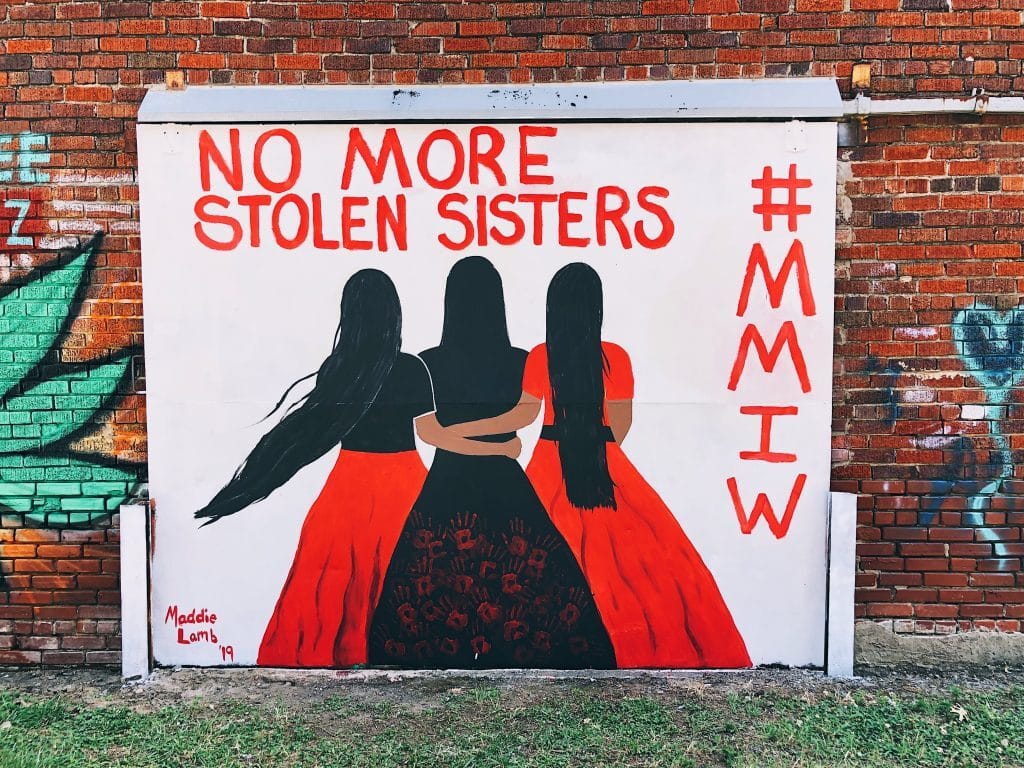Missing and Murdered Indigenous Women and Relatives Crisis and Paid Safe Leave

Paid time to care is a crucial lifeline for so many workers and families. Due to historical factors and societal systems, certain communities experience worse health and safety outcomes compared to others, and these are the communities that we try to uplift in our work. These are the folks that need paid time to care the most.
Did you know that Native communities face some of the worst health outcomes and some of the highest rates of domestic and sexual violence? There are many reasons for these disparities: the main one is colonization and its different effects on the lives of Native communities. Colonization is still ongoing, as Native communities and tribal governments continue to fight every day for their sovereignty, land, access to resources, and treaty rights.
In 1776, the Declaration of Independence was signed, and the colonies became a separate country that no longer answered to the British or other European sovereign. Colonization was occurring through physically violent means, such as settlers forming militias and fighting Native communities in order to steal lands, and through other nefarious ways of taking land from Native communities. Tribal leaders were often coerced and lied to during the treaty making process by U.S. government officials. Sometimes U.S. officials were negotiating with people who weren’t actual tribal leaders, or even from the tribe whose land was on the table. While inherently flawed and often not abided by the U.S. government, the treaties remain important to tribal governments today. Each of 374 treaties created between the U.S. government and tribal governments are different in what they promise, but most require that the U.S. government is responsible for the health and general welfare of tribes. Supreme Court cases in the 1800s also affirm this.
The U.S. government has regularly broken these treaties by doing things such as kidnapping Native children to send them to boarding schools that forbade their culture or to house them with non-Native families; by forcing tribes on death marches to places that away from their ancestral homelands; using militias to fight for more land than what was supposed to be ceded; trying to terminate tribal government’s statuses as sovereigns; and in contemporary times, by severely underfunding services that support the health and general welfare of tribes. The result of all of this is that Native communities are not on equal footing with non-Native communities. Furthermore, tribal governments have been restricted in their criminal jurisdiction, meaning that tribes have limited power in prosecuting non-Native offenders who commit crimes on tribal lands. All of this has created a population that is exceptionally vulnerable to violence: Native women.
The Missing and Murdered Indigenous Women and Relatives (MMIWR) crisis was created in this environment. Predators know that tribes have limited power in prosecuting them and they know that the federal government has such high rates of declining to prosecute violent cases that occur on tribal lands, so they intentionally target Native women to harm – whether that’s by domestic violence, sexual violence, or sex trafficking. Through the reauthorization of the federal Violence Against Women Act, advocates have been able to restore some criminal jurisdiction to tribes when it comes to those three criminal acts so that participating tribal governments can prosecute a non-Native person in these instances. Native scholars like Sarah Deer see the MMIWR crisis as part of the ongoing colonization of Native communities.
Survivors of domestic violence, sexual violence, and sex trafficking and their family members need paid safe leave to access victim services, to go to tribal court, to relocate, and to re-establish their livelihoods. Almost all paid sick day laws cover safe leave, which gives survivors and their families a few days a year. Six of the fourteen paid family and medical leave laws cover safe leave, which can give survivors and their families up to 12 weeks of safe leave. Self-employed workers are not covered by paid sick and safe days, but they can opt into most of the paid family and medical leave programs if they live in a state with a program. It is important to note that tribal governments do not have to abide by state laws, so people who work for tribal governments may have different paid time to care policies than people who work for private employers or a U.S. state.
While paid safe leave is not a magic solution to solve the problems of colonization, it can help to prevent further violence against Native women. Our work to pass and implement strong paid safe leave laws, and to continue building relationships with Native communities so that these policies reflect their experiences, is urgently needed. As non-Native people educate themselves about our own U.S. history and about Native issues, we can be part of ending the MMIWR crisis. Please support Native-led organizations like the National Indigenous Women’s Resource Center and Native-led anti-violence organizations in your state.
by Preston Van Vliet (they/him), Leading State Policy Organizer